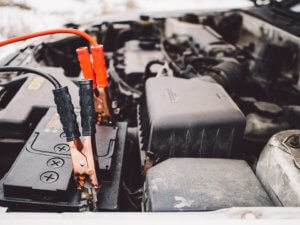 Everything in a vehicle is dependent on the battery inside it. The average life of a battery is around four to five years. If you have been a car owner for a long time, you may have noticed that starting it during the normal weather does not require much effort. However, the extreme weather make it very difficult to start your engine – it is the time when most car batteries tend to fail.
Everything in a vehicle is dependent on the battery inside it. The average life of a battery is around four to five years. If you have been a car owner for a long time, you may have noticed that starting it during the normal weather does not require much effort. However, the extreme weather make it very difficult to start your engine – it is the time when most car batteries tend to fail.
You would be surprised to learn that thousands of people experience battery failure in the middle of the road, which often results in unpleasant events. Many drivers find themselves stranded in the middle of nowhere, requiring roadside assistance patrols.
Temperature and Battery Performance
Traditional lead acid batteries contain lead plates submersed in electrolyte liquid, creating an electro chemical reacting that produces charge for the battery terminals. This chemical greatly benefits from heat as it accelerates its activity while speeding up internal corrosion. This also reduces the battery’s lifespan.
This phenomenon is especially true in batteries capable of reaching high internal temperatures repeatedly. Once the heat changes the capacity, you cannot restore it. However, just like heat triggers chemical reactions, colder temperatures do the opposite and slow things down. It is the main reason why most batteries tend to become slow and sluggish during the winter.
When temperatures are extreme, batteries lose their ability to offer an adequate amount of power for starting and running a car. In most cases, the rating used for automotive batteries is CCA, which is short for cold cranking amperage. This is essentially the quantity of current batteries can provide for thirty seconds at temperatures lower than 18 degree centigrade without any drops to cut off voltages.
Lead acid batteries, if fully charged, are capable of surviving up to 50 degrees centigrade. However, a battery may freeze at temperatures below -1 C if its state of charge is on the lower side. So, whenever the water in a battery cools up and freezes, it damages the cells, causing irreparable damage in the process.
Signs that Show Your Battery is Getting Weak
If you notice the following signs, there is a huge chance that your car’s battery is becoming weak:
– Dim lights are often an indicator of weak battery
– If you notice a sulfur-like smell, your battery may require repair or replacement
– If the engine is taking too much time to start, there is a chance that your battery doesn’t have enough power
– Your vehicle’s battery could be weak if its engine light is on
Prioritize Car Battery Maintenance in Cold Weather
Whether it’s the summer or the winter, prioritizing your car battery’s maintenance is a must. There are several telltale signs that indicate whether your vehicle’s battery is facing issues. Sluggish sounds are arguably the biggest indicator of something wrong with your battery and should be taken very seriously. If you notice these sounds, do not assume that you need to replace your battery. In some cases, getting a professional to service it could get it back in running condition.
Is your car battery not performing like it’s supposed to? If yes, it may have some wiring problem or other issues. Whatever the case, Blaine Auto Care is here to help. Get in touch with us and schedule an appointment and our professionals will get your battery up and running in no time!